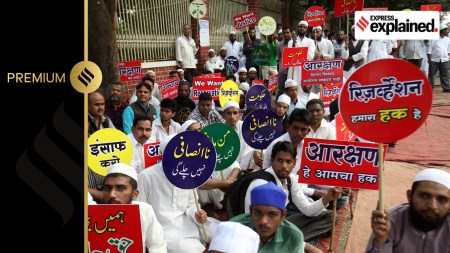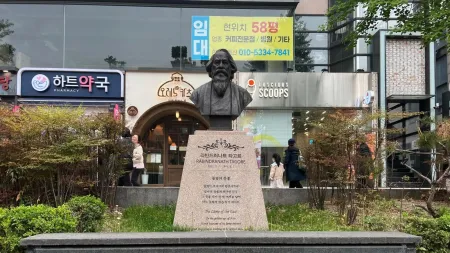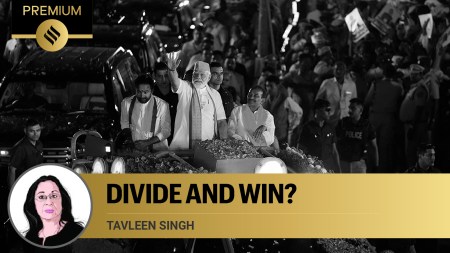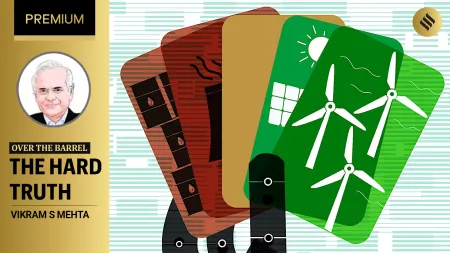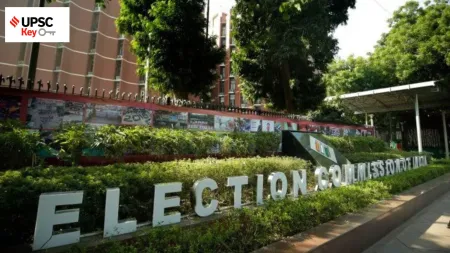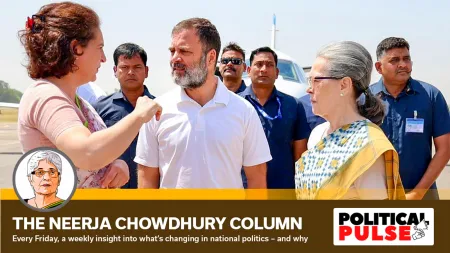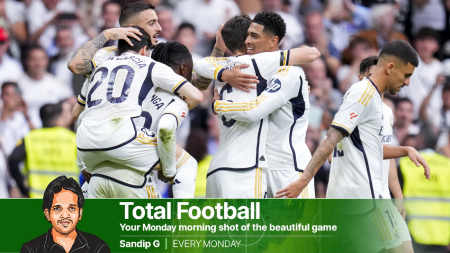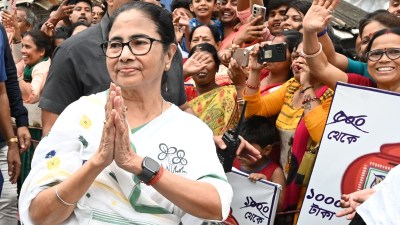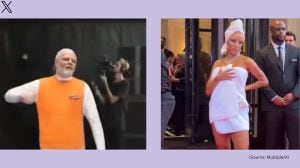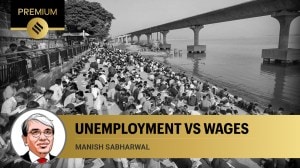- India
- International
Doklam thaw at BRICS if both prepare well: Shivshankar Menon
Asked about the possibility of a breakthrough on Doklam at BRICS, Menon, who has also served as Ambassador to China, said that would happen but only “if the summit is prepared well by both sides, they actually talk about these issues before hand”.
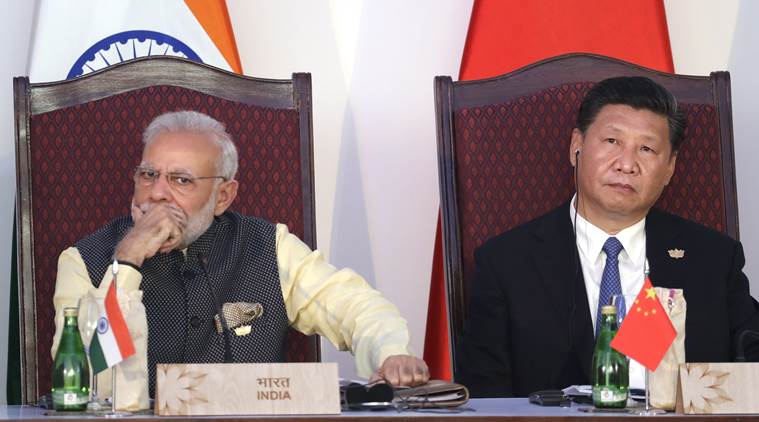 Doklam standoff: Prime Minister Narendra Modi and Chinese President Xi Jinping. (AP Photo/Manish Swarup, File)
Doklam standoff: Prime Minister Narendra Modi and Chinese President Xi Jinping. (AP Photo/Manish Swarup, File)
A breakthrough on the two and half month-old standoff at Doklam between Indian and Chinese armies is possible during the next month’s BRICS Summit in China only if both sides prepare well for it in advance, as per the former National Security Advisor, Shiv Shankar Menon. He also welcomed US President Donald Trump’s speech on Afghanistan, as it contained some positives, but wants India to follow its “own interests” in Afghanistan.
Besides being the NSA to PM Manmohan Singh, Menon, who also served as the Ambassador to China and foreign secretary, told The Indian Express in an exclusive interview that any breakthrough on the standoff at Doklam during next month’s BRICS summit can only come “if the summit is prepared well by both sides, they actually talk about these issues before hand. The way Chinese and we have negotiated in the past, these things have always been carefully prepared, rather than done on the spur of the moment.”
The ninth BRICS summit will be held at Xiamen in China from September 3 to 5. Although it has not yet been officially confirmed, PM Modi is expected to attend the summit which will also be attended by the Chinese Premier Xi Jinping. Since the standoff began at Doklam on June 18, this will be second time the two leaders will be attending the summit. They had met during a BRICS leaders informal meeting at Hamburg in Germany early last month, which did not lead to any breakthrough.
According to Menon, the forthcoming Communist Party Central Congress doesn’t provide Beijing the best opportunity for a negotiated settlement at this point. He also said that despite an escalation being in neither Indian or Chinese interest, the danger of an inadvertent escalation between the two armies remains.
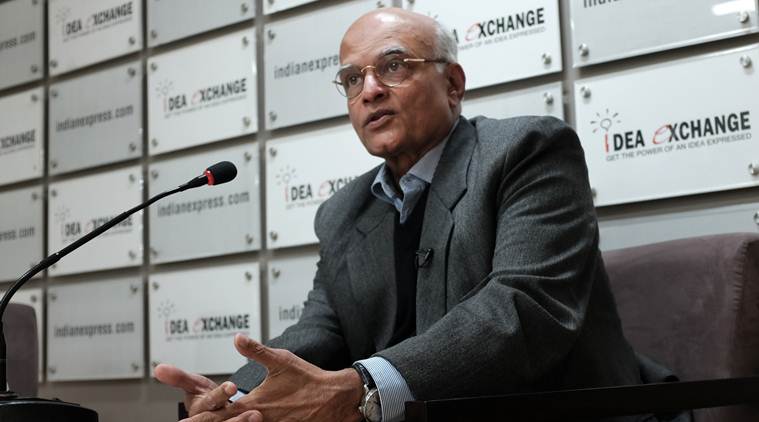 Shivshankar Menon. (Source: Express photo by Cheena Kapoor/File)
Shivshankar Menon. (Source: Express photo by Cheena Kapoor/File)
Commenting on the internal security challenges India faces, the former NSA said that “terrorism is not the kind of strategic threat that is in the public mind and in the media”, because “over time, the state in India has learnt how to do counter-terrorism better and better”. “If you look at deaths from terrorism, they have come down steadily. But if you look at where is the violence in our society has increased, it is from communal violence, polarisation. Since 2012 onwards, it has been going up. That for me is a real risk because it leads to radicalisation and communities being alienated,” he added.

The former NSA also said that the problem in Kashmir is now more of alienation than of terrorism. “The numbers for terrorism have been going down. It is the alienation problem. It is more than a law and order problem. It is a combination of law and order with politics and society. Society has changed in Kashmir. It is no longer the same old Kashmiri society. You can’t count on Kashmiriyat… and you need to look at the whole picture. The economics of Kashmir have changed because there is now an economics of insurgency actually,” Menon explained.
He argued that kinetics, i.e., use of violence by the state, can be a big part of the solution but it is not sufficient to solve any problem. “Unless you start looking at various parts and dealing with them separately (in Kashmir)… it is not enough to say Oh, you must talk,” he said.
Referring to an army operation against a NSCN camp inside Myanmar in 2015 which led to boastful claims by ministers, Menon said that “We had very few metrics of hard power before. This is new to us so like anything new, we are thrilled with it. You saw this with the Myanmar border where you had new people doing things which we had done for many years but they were so excited: ‘look, what we have done’.”
The former NSA welcomed President Trump’s speech on Afghanistan as it contained three positives for India: one, high-level recognition by the Americans of the role of Pakistan and safe havens for terrorists in that country; two, clear red line about the Taliban not coming to power in Afghanistan; and three, no deadlines which allow the terrorist groups in Afghanistan to wait the Americans out. But he found Trump’s speech short on specifics and emphasised that subsequent statements by US officials have already diluted some of the strong views in the speech. Moreover, “the biggest hole in this policy is that you cannot think of a regional approach to a settlement or improving the Afghan situation without Iran or without Russia,” argued Menon.
He said that irrespective of Trump’s speech, New Delhi should continue to follow its own interests in Afghanistan. “Our interest is in helping to stabilise Afghanistan in doing as much as we can to see Afghanistan becomes a normal, stable society. And that terrorism in Afghanistan, represented by the Taliban, al Qaeda and ISIS is defeated. That is our goal, and to the extent Trump is saying that, that is the US goal,” Menon added.
On China
Q: Besides the standoff at Doklam, a scuffle at Pangong Tso in Ladakh, and other reports of more Chinese intrusions in Uttarakhand and Ladakh – with greater intensity and aggressiveness – being more provocative. Where do you see the situation going from here?
SSM: I am not sure of the details. Barahoti in Uttarakhand, they have always come, even earlier. Even on Pangong Tso, we have known that there is a difference in our perception of the LAC. We have building a road for some time, and this is not this season, and it has been an older problem. So, until you know all the details, it is very dangerous to jump to a conclusion about how much more serious or provocative Chinese actions are.
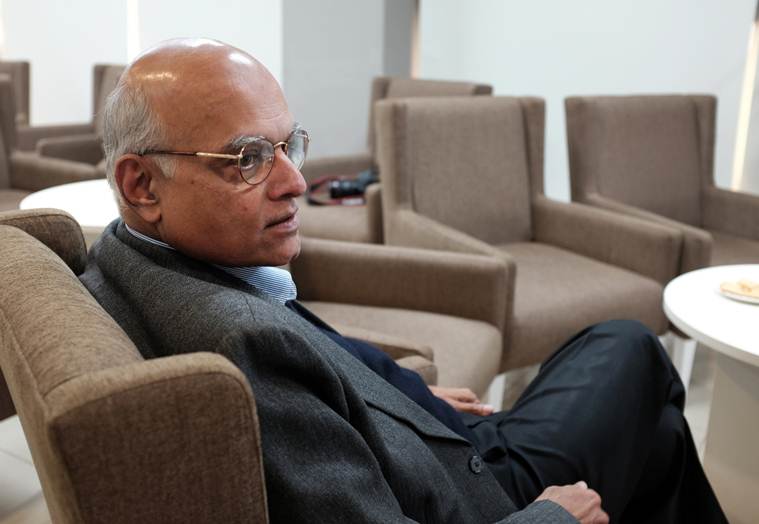 Shivshankar Menon, who served as National Security Adviser to Prime Minister Manmohan Singh at the Idea Exchange. (Source: Express photo by Cheena Kapoor/File)
Shivshankar Menon, who served as National Security Adviser to Prime Minister Manmohan Singh at the Idea Exchange. (Source: Express photo by Cheena Kapoor/File)
But the fact is that in the Chinese media projection to us — not in their social media or Chinese language media to their own people — but certainly in English language Global Times and others projecting to us, China is projecting that the whole thing is live now. That there is a real problem here and it is not only confined to Doklam alone. But in Doklam, they are certainly insisting on an Indian withdrawal.
Government has said very clearly that they are willing to use diplomacy, they will be patient but there is no question of changing our attitude or stance. I think that is actually the right thing to do, when you are faced with a situation where China has changed its behaviour in several respects – on the ground certainly in Doklam, other places I don’t know as much, in what she is saying to you, in the level and the kind of language that the official spokesman of the foreign ministry or the ministry of defence of China are saying to you. Since all this has changed, we naturally have to take steps to protect our position and our interests.
Frankly, where it will go is much harder to predict. But so far, so good. If the Chinese want a negotiated settlement of this, maybe this is not the time to do it. They have the 19th party congress coming, maybe domestically this is not the right time. We will sit and wait, and we will see but today you cannot say with certainty that that is what they want to do, because that is not what they are saying. They are saying India withdraw first, and then we will see.
Q: With the tensions, does some fear of a kinetic escalation still remain, on any part of the LAC?
SSM: There is always a risk when two forces are actually face to face, in a situation where both sides think this is their side of the line. But so far, both sides have managed it well. It is not in either side’s interest to escalate. I don’t see what political or military or even territorial gains would justify the costs of that escalation, because it will have other costs. If you were seen to be unable to manage this relationship, both of you, it will have other costs, and that I am not sure what would justify that.
But that doesn’t mean that inadvertently, you can’t get into trouble, other things can’t happen. But that’s exactly why we have put in place these SOPs and everything that we have done since 1993, is precisely to prevent that. And so far, it has worked.
Q: With the Chinese rhetoric and their decision to not attend August 1 and August 15 ceremonial border meetings, is status quo an answer? Would Chinese accept that?
SSM: That you have to ask them. They are willing to climb on a limb here. As the Chinese keep saying, who ties the knot has to untie it himself. This is a knot that we have tied, and it is not India who changed the status quo, started all this or used over the top rhetoric. This is something they have to figure out.
If you look at Chinese behaviour in last five years or so, there have been other instances where they have escalated the rhetoric very high. With Japan, the East China Sea for instance. In South China Sea, there were areas and times when they again and then they rolled it back also afterwards.
Maybe this is a new China, new China’s behaviour or the new Chinese way of signaling, and we in India are seeing the change in pattern for how they say, what they say, what they do. Let’s see. We have to analyse it and look at it carefully.
Q: If PM Modi goes to BRICS summit, can it help untie the knot?
SSM: …only if it is prepared well. If the summit is prepared well by both sides, they actually talk about these issues before hand, the way Chinese and we have negotiated in the past, these things have always been carefully prepared, rather than done on the spur of the moment. And the Chinese system is, in that sense, quite bureaucratic. It doesn’t like being surprised.
Trump’s Afghanistan speech
Q: What do you make of President Trump’s speech on Afghanistan, and statements by other US officials, particularly concerning the Indian role there?
SSM: From our point of view, it has three positive elements. For the first time, we have seen such high-level recognition by the Americans of the role of Pakistan and how dangerous these safe havens are and what they mean — and to actually tell Pakistan to do something. We have heard it before at Secretary of State’s level when Hillary Clinton told Pakistan that you can’t nurture snakes in your backyard only to bite your neighbour. But this is much much stronger. And its linkage made to Afghanistan and the situation there.
Secondly, he made it quite clear that the Taliban can’t come to power, which frankly is a much clearer political goal than saying that we will have a political settlement in which we will include the Taliban and bring them into the mainstream. This he was absolutely clear and laid out a result-outcome based approach rather than the number of troops and dates and deadlines. That’s the third part, there are no deadlines. So, it is not just a question of the Taliban, the al Qaeda and the ISIS waiting them out. To that extent, it was good.
The trouble is that all three elements were diluted immediately by people in his own government. Rex Tillerson, for one… General Nicholson saying that the Taliban has to be brought into the political process. If your whole goal is to defeat them and exclude them, then how are you going to… so it’s very hard and speech was itself very weak on specifics.
Pakistan will do what it can do to avoid any cuts in aid or any diminution in its role in Afghanistan or to prevent any increase in India’s role which is what Trump has actually specifically asked for. They will use the levers that they have, other friends, they have got the Chinese to make statements. They control NATO supply lines into Afghanistan – in 2011, they actually cut them. That threat is always there.
This is still a fluid situation. When he says India should do more, does it mean more economically, that we are doing anyway. We have already done more than two billion dollars and we will do to develop Afghanistan. The development, the assistance, that will go institutional building. If he is looking for a direct Indian military role, frankly, that risks two things. It risks bringing us into direct military conflict with Pakistan’s proxies but even with Pakistan. Because that is one thing Pakistanis use as their excuse to justify all their bad behaviour and their support to all these terrorist groups. I am not sure whether that is they expect. Mattis is coming, Tillerson is also coming. By the end of the month, we should have a good idea about what it means in actual practice.
The speech was built as a big policy but it is not a policy. You don’t see the implementation part of it. You see a couple of headline statements, some big goals, some improvements on previous administration’s Afghan policy – these three things. For me, the biggest hole in this is that you cannot think of a regional approach to a settlement or improving the Afghan situation without Iran, without Russia. And there was no mention, or recognition of this. If the idea is, as Nikki Haley said, regional solution, which India is ready, has always been ready to work with others to try and stabilize Afghanistan and defeat terrorism coming out of and in Afghanistan, then it has to include everybody and that was a big hole in this policy.
Q: Does it end up hyphenating India and Pakistan, ala Holbrooke?
SSM: People say it is rehyphenisation. It depends on how you do it. When Tillerson says India, be nice to Pakistan so that Pakistan is nice to us in Afghanistan, that is hyphenisation. That I don’t see any Indian government or any Indian accepting. But when he says will you work with us in Afghanistan, that is not hyphenisation.
Q: Should we be in wait and watch mode?
SSM: No, we should follow our own interests. Our interest is in helping to stabilise Afghanistan in doing as much as we can to see Afghanistan becomes a normal, stable society. And that terrorism in Afghanistan, represented by the Taliban, the al Qaeda and ISIS is defeated. That is our goal, and to the extent Trump is saying that, that is the US goal.
Q: How much of that help should be military help?
SSM: That depends on the situation. Horses for courses, strengthening the Afghan government, certainly it makes sense. They have been kept on a very thin military diet by the US, because of the worry of Pakistani sensitivity. If today he is less sensitive to what Pakistan thinks, and is willing to help Afghan create a real army, good. Because it is not that Afghans don’t know how to fight, they have proved that in history. But certainly, they haven’t been given the weapons or means to do so.
Q: Should India be sending boots on the ground in Afghanistan?
SSM: Boots on the ground is a different thing. You have to look at the actual cases and the actual utility of it. You don’t want to go there and create more trouble by just putting boots on the ground. If it helps to stabilize the situation, if it helps to defend your interests, then it is worth it. It is something that you can consider but today I don’t see a situation where it works for India.
On internal security
Q: From your time in the government to now, how do you see the internal security situation changing in the country?
SSM: Over time, the state in India has learnt how to do counter-terrorism better and better. Terrorism is not the kind of strategic threat that is in the public mind and in the media. If you look at deaths from terrorism, they have come down steadily. But if you look at where is the violence in our society and so on, it is from communal violence, polarization – that has actually gone up. Since 2012 onwards, it has been going up. That for me is a real risk because that leads to other things. It leads to radicalization, communities being alienated and so on.
And social violence. Part of this whole urbanization or rootlessness, crimes against women, that kind of personal insecurity, that is dangerous. We need to do much more in reforming the way we police, we run internal security. If you look at external security, external affairs, all these have been reformed pretty basically compared to what we inherited from the Raj. Internal security is one area where we haven’t actually changed the structures, changed the way we do things. If anything, we have lost some of the capabilities that we used to have because we no longer are a settled society. For a police station to keep a list of ‘Dus Numbaris’ today makes no sense. Nobody is struck in one village or around one police station.
Q: The images coming out of Haryana now…
SSM: We need to improve the way in which we handle these things. And we have been talking of police reforms, community policing and all that. Supreme Court has given us orders since 1996 and there we really need to do much more.
Q: In Kashmir, number of terrorists has come down but the problem remains.
SSM: The numbers for terrorism have been going down, they are nothing. It is the alienation problem. It is more than a law and order problem. It is a combination of law and order with politics and society. Society has changed in Kashmir. It is no longer the same old Kashmiri society. You can’t count on Kashmiriyat or… and you need to look at the whole picture. The economics of Kashmir have changed because there is now an economics of insurgency actually. Unless you start looking at various parts and dealing with them separately… it is not enough to say Oh, you must talk.
Q: Why are we, as a State, so obsessed with kinetics even now?
SSM: We had very few metrics of hard power before. This is new to us so like anything new, we are thrilled with it. You saw this with the Myanmar border where you had new people doing things which we had done for many years but they were so excited: look, what we have done. This is part of the problem, these are new tools. These are new capabilities. This is natural, this is human… I don’t think you can hold this against people. But you have to put it in a context and remember that there is more to these problems than just the kinetics and kinetics never solves it. It is a part of the solution, can be a big part of it, but never sufficient.
Right to Privacy
Q: Where do you stand on the SC judgement on Right to Privacy being a Fundamental Right?
SSM: It is a very good judgement because the Right to Privacy needs to be maintained. But my problem is that the domain itself, cyber and technology, makes privacy almost impossible. And you can have good judgements, good laws if parliament decides. But who will it constrain? It constrains the government, government will follow its own laws, I presume. It constrains the law abiding citizens. But the real threat to privacy come from the corporations who actually control your data, and the whole domain is a domain of anarchy where there are few large corporations controlling it and those who actually do not respect the law. The threats from these two, to privacy, are not addressed by passing laws or by having good Supreme Court judgements. At least not this kind of judgement.
You can mitigate the effects of what corporations do. You can say that you can only keep this type of data, keep so many days… that is mitigation. It doesn’t solve the problem of what is happening in the domain. This is all very well so far as it goes, but you also need to have a much bigger conversation, and change your definition of privacy actually. You can’t carry with the old habits and expect the same things to work in cyber. I assume that everything I do on the web is in the open.
May 08: Latest News
- 01
- 02
- 03
- 04
- 05



